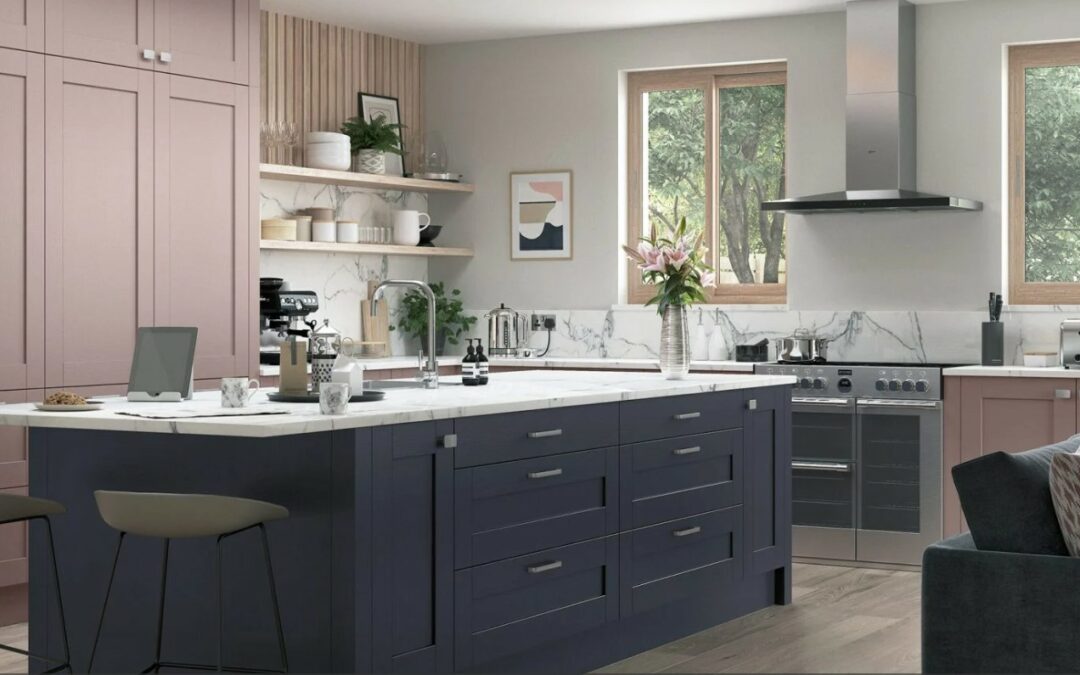You’re at that stage where the installation team have left for the last time. A small part of you will miss having them around, but after all the planning and decision making, your long awaited, brand new kitchen is ready to go.
You lovingly arrange all of your crockery, pots, pans and other kitchen paraphernalia in your new cabinets. With a sense of pride, you stand back to admire your work.
Your new kitchen is a considered investment that you’ll want to enjoy for years to come. Proper maintenance is key to protecting both its value and functionality.
Here are some practical tips to help you care for your new kitchen, to ensure its longevity and continued charm.
Cleaning Routines
Light cleaning on a daily basis is essential to keep your kitchen looking fresh and functioning efficiently. Simple tasks like wiping down countertops, quickly rinsing dishes, and cleaning up spills immediately can prevent grime and stains from building up. Regularly cleaning high-touch areas such as cabinet handles, faucets, and appliance surfaces will help maintain a hygienic environment. Sweeping the floor helps to avoid crumbs and dirt from accumulating, making deep cleaning sessions easier. With just a few minutes of attention each day, you can keep your kitchen looking tidy and organised without a major time investment..
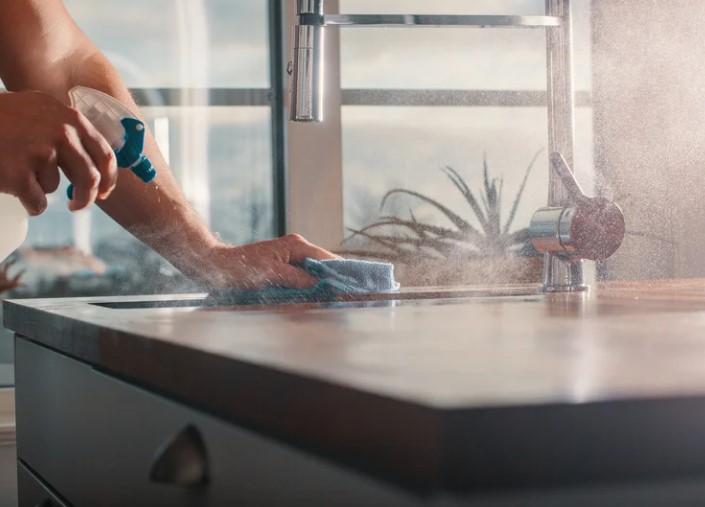
1. Preserve Your Cabinets
Cabinets are used daily and need to be well looked after.
- Dust regularly with a clean dry cloth.
- To keep them looking fresh and new, wipe them down periodically with a soft damp microfibre cloth and buff with a dry microfibre cloth.
- We advise you to avoid harsh chemicals or abrasive pads that can damage the finish or stain (such as bleach, solvents, or vinegar).
- Avoid overloading shelves with too much weight.
- Regularly check that all handle screws are secure.
- Do not spray glass cleaner directly onto the glass doors. Instead, spray a small amount of cleaner on to a lint free cloth or paper towel then wipe the glass.
- Ensure all cooking splashes, spills and condensation on the fascias/panels are wiped immediately with a damp cloth, and dried.
- If the surface is exposed to any oil based substances (for example olive oil, butter, margarine or cooking oil), it’s important to wipe it away immediately to prevent staining.
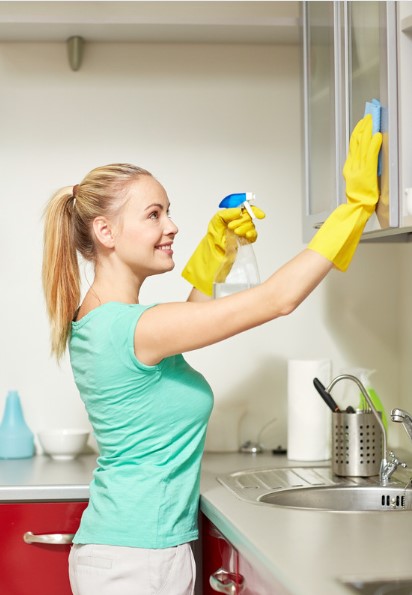
2. Keep your Worktops Pristine
Your worktops are the most heavily used surface in the kitchen. The following practical tips will help maintain functionality and appearance:
- Wipe up any spills immediately with a damp microfibre cloth and then dry the surface with a dry microfibre cloth.
- Remove stubborn stains with a weak washing up liquid solution and a damp cloth and dry after with a clean cloth.
- Never place hot pots or pans directly onto your worktops
- Use chopping boards and other protective measures to prevent scratches or blunting knives!
- Avoid abrasive, strong chemicals and bleach.
- Avoid banging the top and do not sit or stand on the work surface.
- If you have laminate worktops, always wipe up any excess water immediately around areas where there are cut joints and cut outs, to reduce the risk of joint damage. Do not leave anything wet, for example damp clothes or sponges on the top front edge.
Quartz, wood, laminate or any other material you choose will require specific care and maintenance. Please refer to the manufacturer’s advice for cleaning and protecting your surfaces.
3. Maintain your Appliances
Today’s appliances are designed to make life easier, but they also need routine care:
- Avoid positioning appliances such as kettles, air fryers, coffee machines and toasters where the heat or steam they omit, over a period of time, may cause condensation and damage.
- Make sure to clean the exterior and interior of your appliances regularly.
- Dishwasher doors should not be opened mid cycle or immediately at the end of a cycle. Damage caused by the excess steam would not be covered by warranty.
- Your dishwasher and washing machine often come with cleaning cycles that you should run monthly.
- Check the seals on your refrigerator and oven doors routinely to confirm they are intact. Replace them if they are damaged or not working correctly.
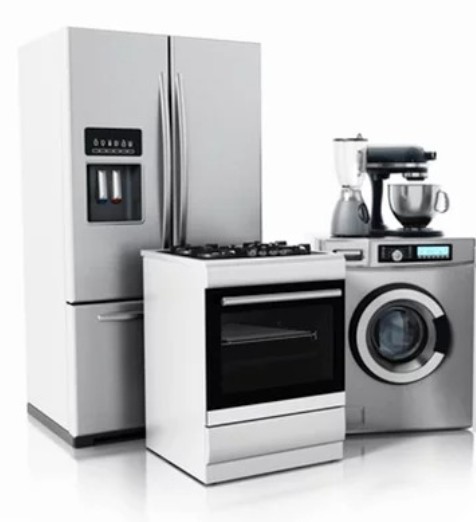
4. Look after Your Sink
Taking proper care of your sink will ensure that it stays looking good and working well for many years:
- Rinse off any food particles or spills immediately. This will help prevent them from sticking to the surface of the sink and becoming harder to remove.
- To clean your sink, use a soft sponge, a little washing-up liquid and warm water. Rub the sponge over the surface in small, circular movements. Finally, rub the surface dry with a microfibre cloth.
- Never use metal scouring pads or brushes, this may cause scratches on the surface.
- Take special care when you’re placing heavy or sharp objects into your sink.
Stainless Steel, Composite, Ceramic or any other sink materials will require specific care and maintenance. Please refer to manufacturer’s advice for cleaning and protecting your sink.
5. Pay Attention to Plumbing
If left unnoticed, plumbing issues can cause significant damage to your kitchen:
- Regularly inspect the pipes under your sink for leaks and drips, to save you from damage.
- Be aware of what you are putting down your drains to prevent clogs and damage. Never pour grease down your sink as it can lead to blockages and heavy damage.
- If you have a water filtration system, make sure you replace your filters as recommended.
- Cleaning waste disposal units by running ice cubes and citrus peels through it will help keep it fresh and prevent smell.
- Take care to regularly clean and maintain your kitchen taps, to avoid limescale damage.
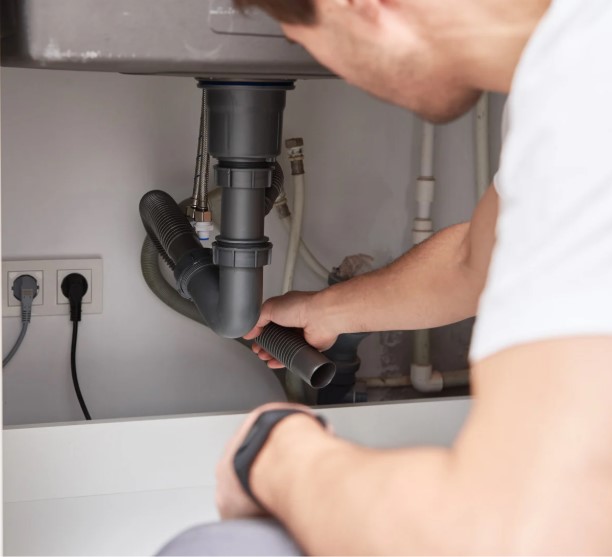
6. Protect Your Flooring
Your kitchen floor is likely to see spills, stains, and heavy foot traffic. Whether you have hardwood, tile, or vinyl flooring, it is imperative to keep it clean and well-maintained:
- Regularly sweep or vacuum to remove dirt and debris that could cause scratches.
- Use a damp mop for a deeper clean often as well but avoid using excess water as it can damage certain types of flooring.
- Avoid using steam mops – they’ll create a lot of moisture (unless the manufacturer says it’s safe).
- Take care when washing floors and work surfaces to prevent liquid from accumulating on or adjacent to plinths and panels. These areas should be dried thoroughly after cleaning.
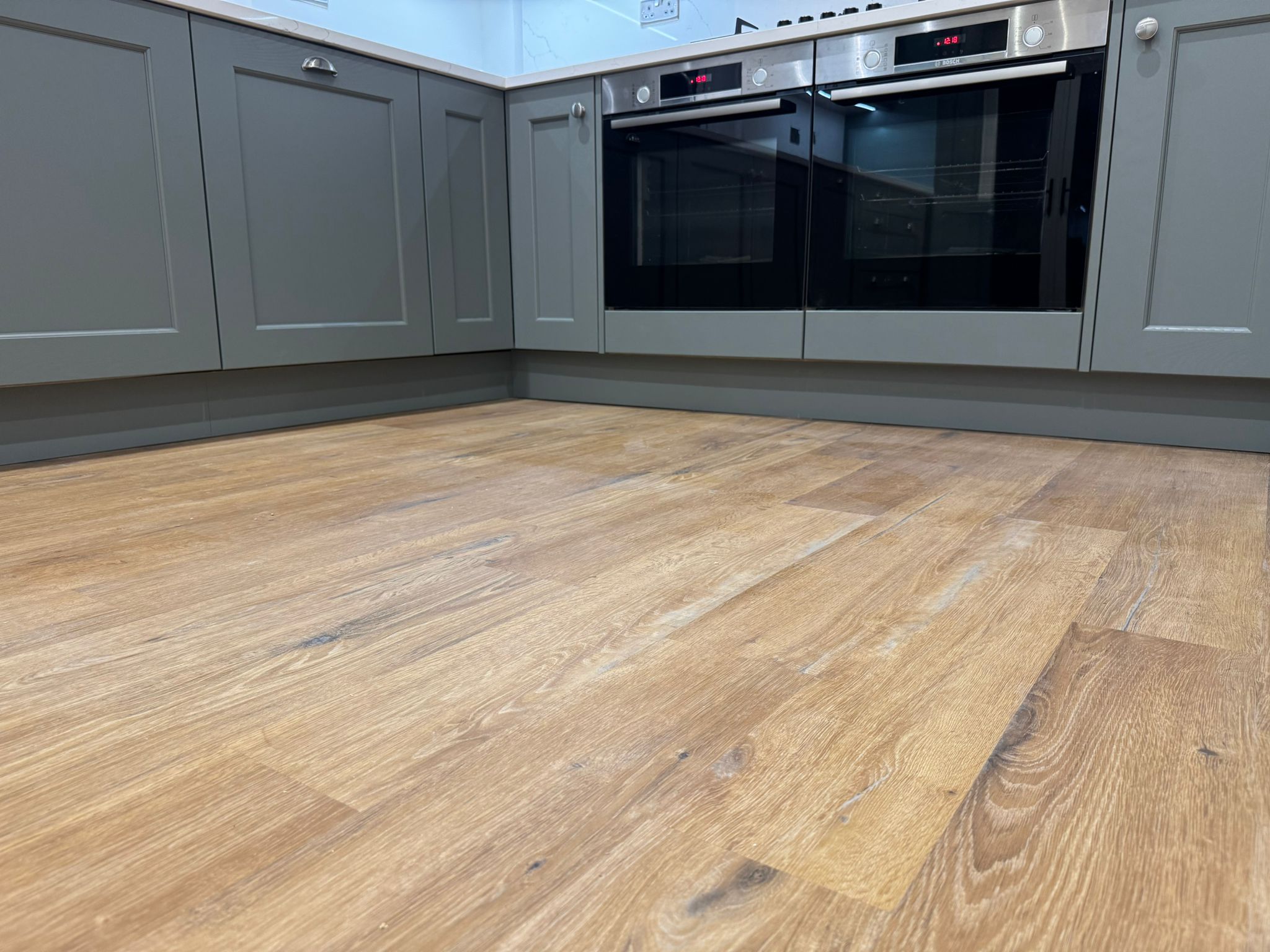
7. Ventilation is Key
Maintaining proper ventilation in your kitchen is crucial to prevent the build-up of grease, excessive moisture, and odours:
- If you have an extractor fan, use it whenever you cook, and make sure it is working correctly as well.
- Moisture rich environments will cause undesirable movement in the joints and panels of the doors.
- Excessive changes in temperature and humidity should be avoided as much as possible.
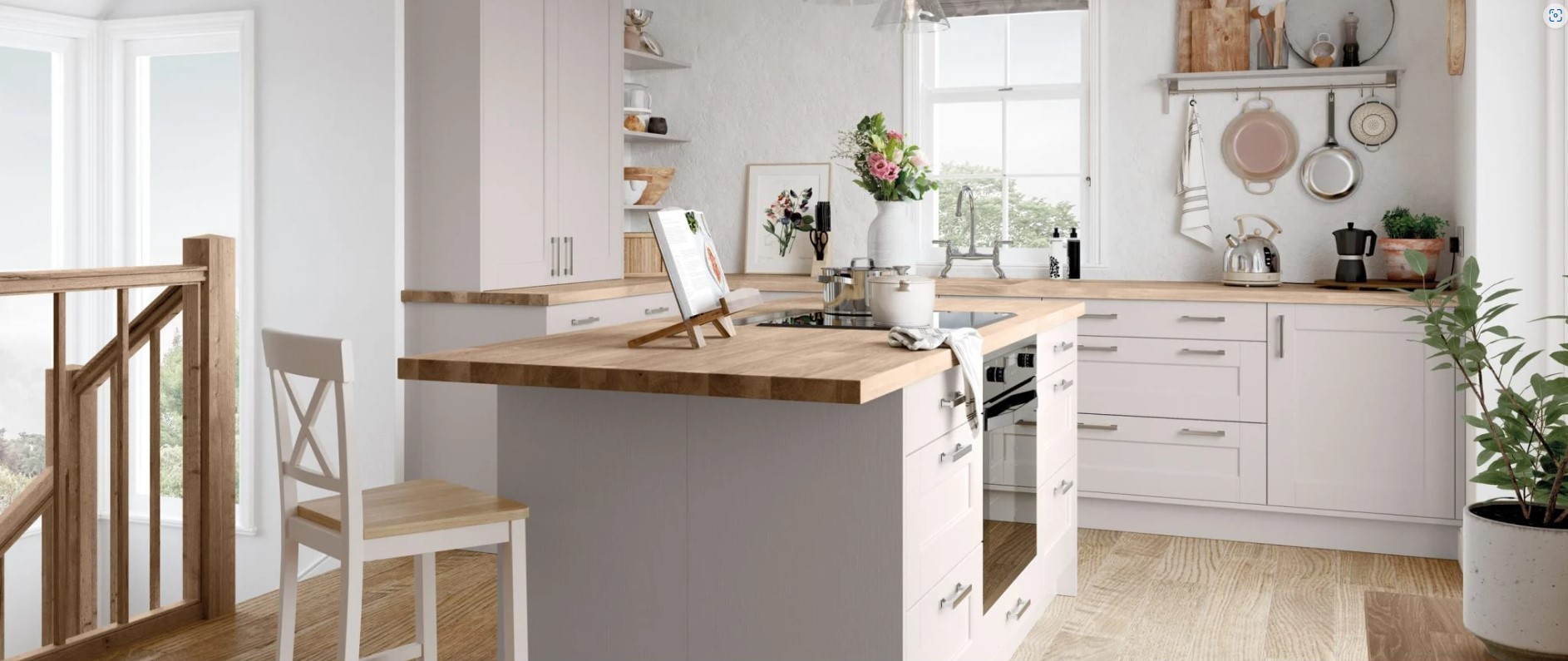
We hope you find these tips useful, to help you make the most of your beautiful new kitchen!

